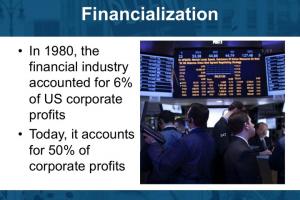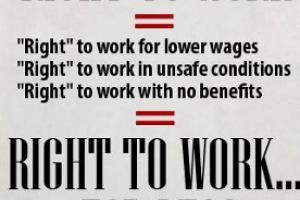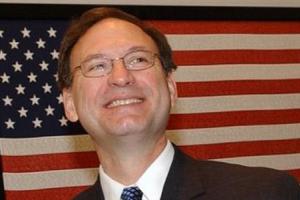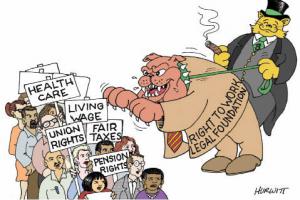Labor Must Take on Capital
Jacobin
 Unions must expand beyond narrow bargaining to challenge those who hold wealth and power at the highest levels. Most unions are accustomed to bargaining with their direct employers, as they have done for decades. But the financialization of the economy has rendered that structure obsolete. In order to win for workers, unions need to take their demands directly to those who actually have the money and control. They can often be found on Wall Street.
Unions must expand beyond narrow bargaining to challenge those who hold wealth and power at the highest levels. Most unions are accustomed to bargaining with their direct employers, as they have done for decades. But the financialization of the economy has rendered that structure obsolete. In order to win for workers, unions need to take their demands directly to those who actually have the money and control. They can often be found on Wall Street.









Spread the word